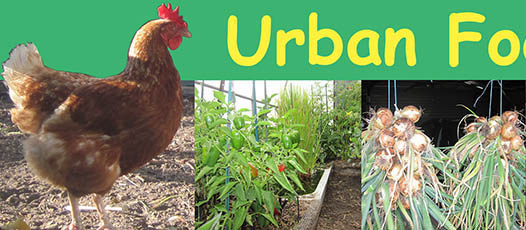chickens
An ethical argument for backyard farm managed chickens
Many people keep chickens as pets because
they think it is more humane than running them as farm animals. But
unless you only ever eat eggs that your pet chickens have laid there
is sound evidence that running chickens as a backyard farm managed
flock is at least as humane as keeping them as pets, if not more.
This is because it is much harder to meet your family's egg requirements running chickens as pets and as soon as you buy commercially laid eggs you are buying into a management system that is far less humane than backyard farm management chicken practices. Your pet chickens might be better off than farm managed backyard chickens but by buying commercially laid eggs your are supporting the commercial egg production industry who's chickens are certainly worse off.
This is because it is much harder to meet your family's egg requirements running chickens as pets and as soon as you buy commercially laid eggs you are buying into a management system that is far less humane than backyard farm management chicken practices. Your pet chickens might be better off than farm managed backyard chickens but by buying commercially laid eggs your are supporting the commercial egg production industry who's chickens are certainly worse off.
commercial chicken management
practices

Chickens that were run as a
naturally
managed flock using a rooster. This was the
method I used for many years until increasing urbanisation in my
neighbourhood forced me to get rid of my rooster.
commercial egg laying chicks
In the commercial chicken industry chicks are not raised by the chicken
farmers, this is done by specialised chick hatcheries. These hatcheries produce either meat or egg laying chicken varieties. If the chicks are produced for the meat chicken industry both male and female chicks are valuable as both can be raised for slaughter. But in the commercial egg production industry male chicks are of no value as they cannot lay eggs and are not suitable as meat chickens as they do not readily put on weight.
Given that about 50% of all chicks hatched out will be male there are a lot of surplus male chicks. These unwanted chicks are quickly disposed off on day one of their live, usually by being gassed to knock them out then run through a mincing machine. While this method of killing is relatively quick it never the less means that their lives are snuffed out before they have even started.
The female chicks remain in the chicken hatchery until they are big enough to be transferred to an egg production facility but the quality of their lives are little better.
commercial egg laying hens
If the young hens are lucky they will be sent to a free range farm,
however the bulk of them will end up in battery hen cages or cramped
sheds as barn laying hens. The battery hen chickens fair the worst
as they are in conditions so cramped that they will be unable to turn
around or even stand. But whatever facility they end up in they will have one thing in common, they will live for no more than eighteen months before being killed. This is because the profit margins are so tight in the commercial egg production industry that it is not economically feasible to keep any chickens that are not laying eggs even for a short while. So as soon as they start to moult (shed their feathers and stop laying eggs) they are all killed and replaced with new pullets.
commercial meat chickens
As both male and female chicks can be raised as meat chickens there
is no culling of day old male chicks as there is in the commercial egg
production industry, but they actually fair little better as they are
mostly kept in the same cramped conditions with no access to sunlight
or natural food, pumped full of growth hormones and antibiotics and
all killed after as little as nine weeks.
backyard chicken management options
There are a number of different backyard chicken farm management
options, all of which offer your chickens a longer and happier life than
commercially farmed chickens. For a full list visit the
Flock
Management webpage. But here are two options for you
to consider.
replacement using hens and a rooster management option
Arguably the most humane way to keep chickens is using the
Replacement Using
Hens and a Rooster management option. This method
gives every chicken you raise a happier and a longer life than chickens
raised in the commercial chicken industry at the same time minimising
the need to buy any chicken meat or eggs. It does however require
you to regularly kill chickens.
staggered natural replacement management option
If you do wish to keep chickens as pets then the
Staggered Natural Replacement option is probably the best
for you. It won't entirely divorce you from the need to buy
commercially laid eggs but it will keep the numbers down to a minimum
and it doesn't require you to kill any chickens.comparison summary
This
is not meant as an attack on the commercial poultry industry.
While I am very much in favour of the phasing out of battery hen
farming I recognise that that most members of the public will
never run chickens, which means there will always be a demand for
commercially produced eggs and chickens. These commercial chicken
farmers usually do the best they can for their chickens within the
framework of market forces.But as long as your backyard chickens are well housed and looked after they will always have a better life than their commercial counterparts. So the less you are involved with the commercial chicken industry the more humane will be your relationship to these wonderful birds.
It is much easier to limit your dependency on the commercial chicken industry if you are running your chickens as backyard farm animals then it is by running them as pets as backyard farm run chickens are much more productive.
Webpage modified 23rd July 2016

